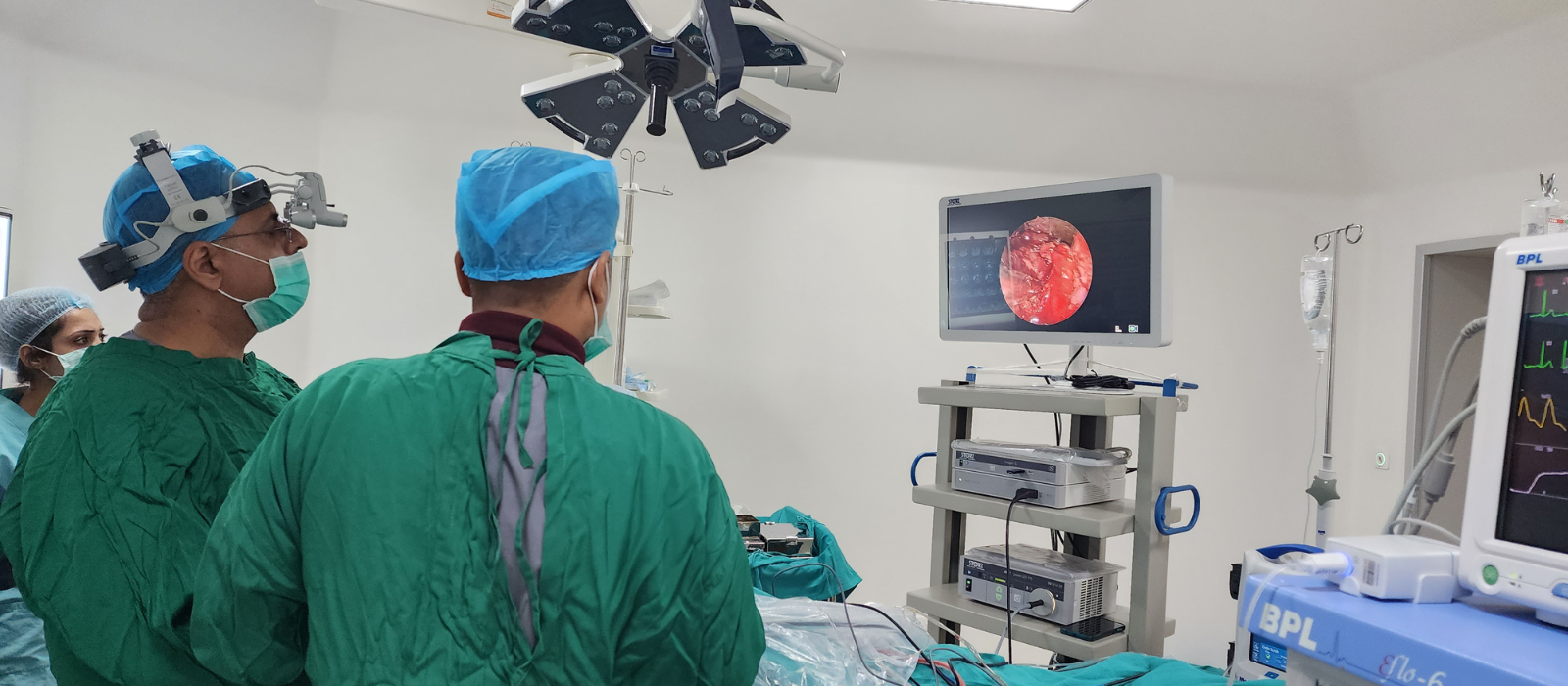-
ENT
- - Ear Nose Throat Consultation
- - Head Neck Cancer Surgery
- - Thyroid Disorders & Thyroid Surgery
- - Cochlear Implant Surgery
- - Allergy Testing
- - Vertigo Evaluation & Treatment
- - Hearing Testing
- - Hearing Aid Fitting
- - Microscopic Ear Surgery
- - Endoscopic Sinus Surgery
- - Advanced Endoscopic Skull Base Surgery
- - Surgery Of Nasal Septum, Turbinates



- MRI
- DIAGNOSTICS
- - Ear Nose Throat Consultation
- - Head Neck Cancer Surgery
- - Thyroid Disorders & Thyroid Surgery
- - Cochlear Implant Surgery
- - Allergy Testing
- - Vertigo Evaluation & Treatment
- - Hearing Testing
- - Hearing Aid Fitting
- - Microscopic Ear Surgery
- - Endoscopic Sinus Surgery
- - Advanced Endoscopic Skull Base Surgery
- - Surgery Of Nasal Septum, Turbinates
- - Cosmetic Nasal Surgery (Rhinoplasty)
- - Coblation Surgery Of Adenoids And Tonsils
- - Diagnosis & Surgery For Snoring & Obstructive Sleep Apnea
- - Voice Disorders
- - Voice Surgery
- - Speech Therapy
NH 35, Sector PHI-3, Near Honda Chowk & Prateek Residency, Greater Noida, U.P. 201308, India
Call: +91-9555 6640 40
Email: info@crhemd.com
graphotive | Brand Consultant
Blog

- June 14, 2025 by Admin
Post-Operative Care Instructions After Ear Surgery
What has happened ?
You have just undergone a delicate ear operation, the success of which depends on your co-operation and following the advice given.
What will the operation do ?
A successful operation will improve conductive hearing loss, not nerve deafness, it will make ear dry and prevent complication.
How Long will it take the full effect to come ?
Hearing loss if present will improve only after 4-6 months. Complete healing of the ear with covering of the skin on the graft will take 6-8 weeks and until then some moisture may be present in the ear.
Pre-Surgery Guidelines: Ensuring a Safe Surgery
o ensure a successful surgery, it is very important to minimize the risk of infection, as infections are one of the most common causes of surgical complications or failure. Here's what you should do:
-
Maintain Hygiene: Bathe properly and wear clean clothes before going to the hospital. Avoid using any powders, lotions, or perfumes on the area near the surgical site.
-
Inform Your Doctor: If you have any signs of cold, fever, sore throat, skin rashes, or infections (especially ear infections), inform your surgeon immediately. Surgery may be postponed until you are fully well.
-
Fasting Before Surgery: You may be asked to stop eating or drinking for at least 6–8 hours before surgery. Follow these instructions strictly.
-
Avoid Blood Thinners: If you are taking any medication such as aspirin, blood thinners, or anti-inflammatory drugs, inform your doctor. You may be advised to stop these temporarily.
-
Arrange Help: Make sure a responsible adult is with you to help on the day of surgery and to assist at home for at least a day or two after surgery.
Post-Surgery Precautions: Safe Recovery
After surgery, following these precautions will help you heal well and avoid complications:
🧍♂️ Position & Movement
-
Lie on your back or with the operated ear facing upwards for the first 2 days after surgery. This helps reduce pressure and swelling.
-
Avoid sudden or jerky head or neck movements. Move slowly and carefully, especially while getting in or out of bed.
-
When turning in bed, turn slowly to prevent dizziness or strain.
🚶♀️ Activity Level
-
On the first day, use the toilet with the help of an attendant.
-
From the second day onward, you may sit up and begin walking slowly.
-
Resume light daily activities gradually. Avoid heavy lifting, bending, or vigorous exercise for at least 1–2 weeks or as advised.
💊 Medications
-
Take all prescribed medications regularly, including antibiotics, painkillers, or any ear drops, for 14 to 21 days or as directed.
-
Do not skip doses and do not stop medication without consulting your doctor.
👂 Common Sensations
-
A feeling of fullness in the ear or pressure is normal after anesthesia. This may last for 3 to 5 days and should gradually reduce.
← Back to Blogs







